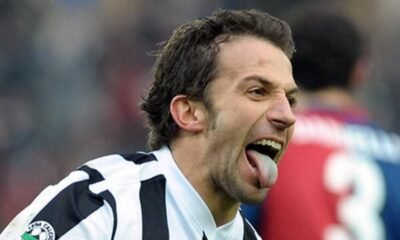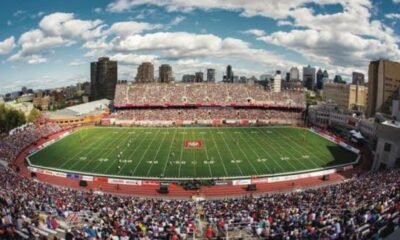Blog
ESPN REPORT: The No.1 world former professional tennis player Rafael Nadal says, Spreading love and building a good Academy background for the less privileged is my hubbies. I announced today the new opening Tennis academy for the less privileged in…. his act of generousity is a world often lacking…see more…

Oplus_131072
ESPN REPORT: The No.1 world former professional tennis player Rafael Nadal says, Spreading love and building a good Academy background for the less privileged is my hubbies. I announced today the new opening Tennis academy for the less privileged in…
Rafael Nadal, the former world No.1 and one of the greatest tennis champions of all time, has once again demonstrated that his passion extends far beyond the boundaries of the tennis court. In a heartfelt and inspirational announcement earlier today, Nadal unveiled the opening of a brand new tennis academy dedicated entirely to supporting underprivileged youth. Located just outside Palma in his home region of Mallorca, the academy is designed not only to train future champions but also to offer hope and opportunity to children who might otherwise never have stepped foot on a tennis court.
“Spreading love and building a good academy background for the less privileged is my hubbies,” Nadal said, his face full of genuine emotion as he addressed a gathering of young players, local families, and global press representatives. Though his words were simple, the message behind them resonated with clarity and power. In a world increasingly defined by division, inequality, and self-interest, Nadal’s act of generosity feels like a breath of fresh air.
The new academy is an extension of the work already being done by the Rafa Nadal Foundation, which for over a decade has been committed to improving education and opportunity through sports and community programs. However, this facility represents a more personal and focused project, born from Nadal’s long-standing belief in sport as a vehicle for transformation.
“This academy is for the dreamers,” Nadal said. “For the boys and girls who may have the talent, the passion, the hunger—but not the resources. Here, we will give them all a chance.”
The facility itself is state-of-the-art. Built over 10 acres of land, the academy boasts ten clay courts, four hard courts, two indoor courts for year-round play, and an academic center that provides formal education from elementary level up to college preparatory coursework. The goal, Nadal stressed, is not just to produce tennis champions, but to shape responsible, educated, and empowered citizens.
In collaboration with professional coaches, sports psychologists, teachers, and nutritionists, the academy offers a full scholarship to every child selected to join. This means no cost for training, education, meals, housing, or travel. The funding comes from a combination of Nadal’s own contributions, private donors, and corporate partners who share his vision for social impact through sport.
“I know what it’s like to be a child with a dream,” Nadal continued. “I was lucky—I had a supportive family, the right environment, and people who believed in me. But many kids don’t have those things. I want this academy to be the family they need, the chance they deserve.”
The launch event included demonstrations by young players already enrolled in the pilot program. One could not help but be moved by the mix of determination and joy on their faces as they took to the court. For many of them, this was their first time in a formal training environment. For some, it was their first real exposure to structured education.
Juan, a 12-year-old from a low-income neighborhood in Madrid, expressed his gratitude in a soft but clear voice: “I never thought I could play tennis like this. I want to be like Rafael one day. But even if I don’t become a champion, I know I’ll have a better future.”
That, Nadal later said, is the essence of the project. Not every child will go on to win Grand Slams or represent their country in Davis Cup. But if they gain discipline, confidence, education, and hope through the academy, then the mission will be a success.
The act of creating such a comprehensive and inclusive program stands out even more in today’s climate, where sports figures are often scrutinized for how they use their fame and fortune. In contrast, Nadal continues to lead with quiet humility and consistent action. His act of generosity is a reflection of a world that is often lacking in compassion, a world where access to opportunity remains limited by zip code, income, or circumstance.
“This isn’t charity,” Nadal emphasized. “This is justice. Every child deserves a chance.”
The news of the academy spread quickly, with players and fans from around the world praising Nadal’s initiative. Serena Williams tweeted her support, saying, “This is what being a champion truly means—lifting others with you.” Fellow Spaniard and football legend Andrés Iniesta commented, “Rafa continues to show us the power of sport to unite, inspire, and transform.”
Beyond the praise and press, the real work now begins. The academy plans to expand in the coming years, with satellite programs in Latin America, Africa, and Southeast Asia. Nadal hinted that similar facilities could open in other countries, each tailored to the needs of the local community. Discussions are already underway with local governments and NGOs to bring this dream to life in regions where access to sport and education remains severely limited.
His vision, he says, is to build a global network of hope—one academy at a time.
It’s a vision rooted not in fame or accolades, but in gratitude and responsibility. Nadal’s own journey, filled with trophies and triumphs, has not made him forget the millions of others who never got a chance to begin theirs. Instead of focusing on retirement or personal legacy, he has chosen to invest in futures that may never make headlines but will matter just as much.
As the sun set behind the brand-new complex, casting golden light over the courts and classrooms, Nadal stood quietly at the edge of the court. He watched the children rallying with energy and laughter, and for a moment, the warrior who once ruled center court was simply a mentor, a teacher, and a man giving back.
The opening of this tennis academy is more than a philanthropic gesture—it’s a challenge to others in positions of influence. It’s a call to action for athletes, corporations, and communities to recognize the potential lying dormant in the less privileged corners of our world.
In the end, Rafael Nadal may be remembered as a titan of the sport, a relentless competitor with 22 Grand Slam titles to his name. But today, he has written a new chapter of greatness—one that doesn’t involve trophies, but transformation.
In a world often lacking in generosity, his act stands tall—not as a monument to his success, but as a gateway for others to create their own.
-

 Other Teams2 months ago
Other Teams2 months agoCFL Expansion: 3 New Cities That Should Get a Team and reason why
-

 Other Teams2 months ago
Other Teams2 months agoSaskatchewan Roughriders quarterback Trevor Harris breaks silence and deliver his swift decision on his CFL future
-

 Blog11 months ago
Blog11 months agoULTIMA ORA: Riesco ancora a mangiare 3 pasti al giorno anche senza la Juve. Il direttore sportivo della Juventus FC Cristiano Giuntoli ha lasciato la Juve senza parole annunciando ufficialmente la data del suo addio a causa…
-

 Other Teams2 months ago
Other Teams2 months agoWhich CFL Stadium Is the Best? A City-by-City Breakdown
-

 Blog8 months ago
Blog8 months agoULTIME NOTIZIE: Netflix pubblicherà un attesissimo documentario sulla leggenda della Juventus FC Alessandro DelPiero. L’uscita è prevista per…vedi altro…
-

 Blog10 months ago
Blog10 months agoUltime notizie: la malattia di Andrea Pirlo ieri sera lo ha lasciato in coma. Il medico ha detto che le sue condizioni di salute sono causate da…
-

 Other Teams2 months ago
Other Teams2 months agoRanking All 9 CFL Stadiums From Worst to Best
-

 Other Teams2 months ago
Other Teams2 months agoCFL Fans Rank Which Stadiums Bring the Best Atmosphere
